That break from the rain was powerful. The countryside sprang into action with blue skies and sunshine lifting the mood.
Across dairy farms in most of the wider west Cork region, there was a boost in the form of Carbery paying a 5c/l weather support in recognition of the difficult spring.
Naturally, I won’t get any benefit from that but a €15/t rebate on ration from Lisavaird Co-op is welcomed too. Maybe that’s the advantage of having co-op board members and staff rooted in their communities and in touch with what affects farmers.
As one farmer said to me: “It shows they’re thinking about us anyway.”
Rain returned after the weekend and the forecast seems to be alternating between north and southwest winds. If it stays from the north and cold, grass growth will slow a bit, south westerlies with a bit of heat would do a power of good but there’s no controlling that either. It will take ground a while to recover though and the impact of rain on Thursday could be seen on the wetter paddocks straight away.
That break in weather eased the workload on farm.
The first load of young bulls went last week so the demand on time and for feed in the yard eased off in a big way. Along with that, the last of the heifers calved and the cows got moving too.
The biggest bunch of cows went to the outfarm on Saturday week and a smaller group joined them before last weekend.
Their leaving lifted the grazing pressure on the home block but grass covers there will need a bit of time to build back up. It means the first calvers that calved first will remain inside until the bank holiday weekend at least. That is unless grass makes an almighty burst and with a week of cold northerly winds that may not happen.
It’s a spring where you’d be very envious of those whose land is all in one block but you’ve just got to play the hand you’re dealt.
Potential replacements
All the potential replacement heifers are finally out to grass and it’s going to be a strong three weeks to a month before the bull will go with them. That should give them plenty of time to get back on track. For the moment, they are probably the group most at the mercy of grass growth. If it slows they may have to go into some of the ground closed for silage and if growth takes off, they’ll be tightened up a bit.
If the moisture continues, then there’ll be extra dry matter for conserving as silage
In case we get a summer to balance out the 10 months of rain, I’ve done what might be classed as positive, negative thinking.
With paddocks grazed bare and some in need of repair I had the contractor in to stitch in a share of paddocks with a cocktail of chicory, plantain and red clover seed.
All of those paddocks have good grass covers and a high percentage of white clover already, so I just ordered straights of the seed I needed and they were put out at a rate of 3kg/ac.
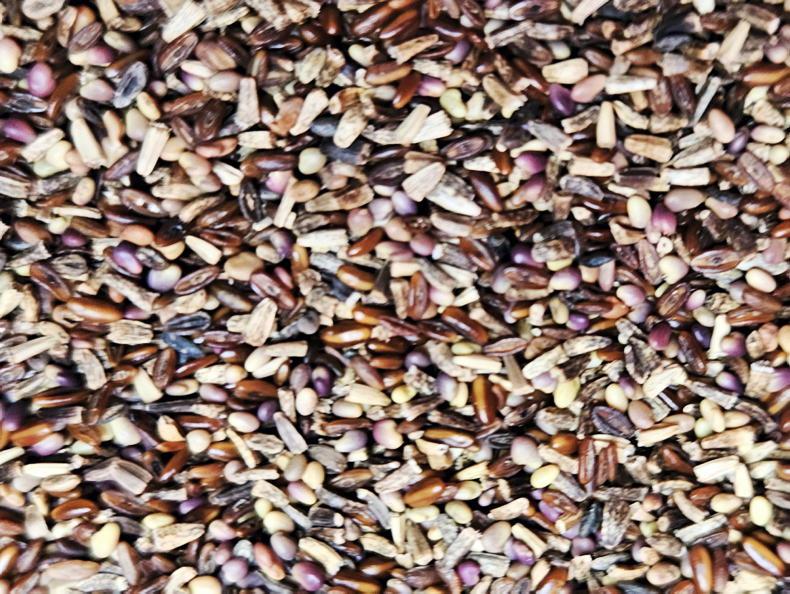
A three-way seed mix of chicory, plantain and red clover which Tommy Moyles stitched into paddocks.
Taking this action is an insurance against conditions drying out too much. The few paddocks with those plants kept me out of trouble when things went dry in 2022, so if the rain stops for a few weeks then I should have enough dry matter growing to avoid feeding silage over summer.
If the moisture continues, then there’ll be extra dry matter for conserving as silage.

Calves enjoying the sun on their backs on Tommy Moyles' farm.
That break from the rain was powerful. The countryside sprang into action with blue skies and sunshine lifting the mood.
Across dairy farms in most of the wider west Cork region, there was a boost in the form of Carbery paying a 5c/l weather support in recognition of the difficult spring.
Naturally, I won’t get any benefit from that but a €15/t rebate on ration from Lisavaird Co-op is welcomed too. Maybe that’s the advantage of having co-op board members and staff rooted in their communities and in touch with what affects farmers.
As one farmer said to me: “It shows they’re thinking about us anyway.”
Rain returned after the weekend and the forecast seems to be alternating between north and southwest winds. If it stays from the north and cold, grass growth will slow a bit, south westerlies with a bit of heat would do a power of good but there’s no controlling that either. It will take ground a while to recover though and the impact of rain on Thursday could be seen on the wetter paddocks straight away.
That break in weather eased the workload on farm.
The first load of young bulls went last week so the demand on time and for feed in the yard eased off in a big way. Along with that, the last of the heifers calved and the cows got moving too.
The biggest bunch of cows went to the outfarm on Saturday week and a smaller group joined them before last weekend.
Their leaving lifted the grazing pressure on the home block but grass covers there will need a bit of time to build back up. It means the first calvers that calved first will remain inside until the bank holiday weekend at least. That is unless grass makes an almighty burst and with a week of cold northerly winds that may not happen.
It’s a spring where you’d be very envious of those whose land is all in one block but you’ve just got to play the hand you’re dealt.
Potential replacements
All the potential replacement heifers are finally out to grass and it’s going to be a strong three weeks to a month before the bull will go with them. That should give them plenty of time to get back on track. For the moment, they are probably the group most at the mercy of grass growth. If it slows they may have to go into some of the ground closed for silage and if growth takes off, they’ll be tightened up a bit.
If the moisture continues, then there’ll be extra dry matter for conserving as silage
In case we get a summer to balance out the 10 months of rain, I’ve done what might be classed as positive, negative thinking.
With paddocks grazed bare and some in need of repair I had the contractor in to stitch in a share of paddocks with a cocktail of chicory, plantain and red clover seed.
All of those paddocks have good grass covers and a high percentage of white clover already, so I just ordered straights of the seed I needed and they were put out at a rate of 3kg/ac.

A three-way seed mix of chicory, plantain and red clover which Tommy Moyles stitched into paddocks.
Taking this action is an insurance against conditions drying out too much. The few paddocks with those plants kept me out of trouble when things went dry in 2022, so if the rain stops for a few weeks then I should have enough dry matter growing to avoid feeding silage over summer.
If the moisture continues, then there’ll be extra dry matter for conserving as silage.

Calves enjoying the sun on their backs on Tommy Moyles' farm.








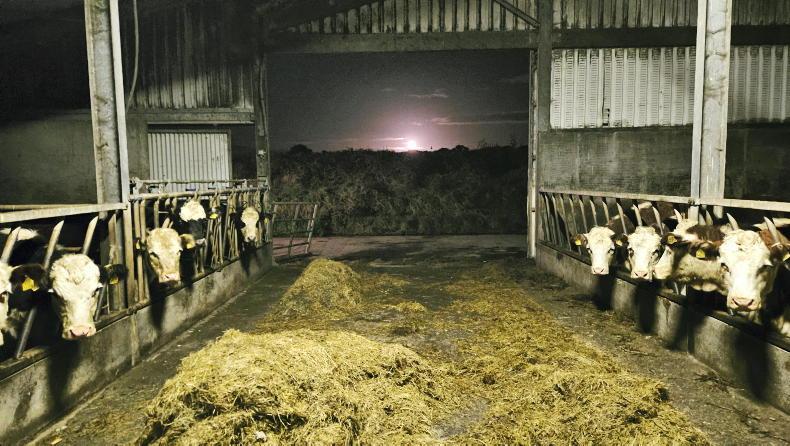

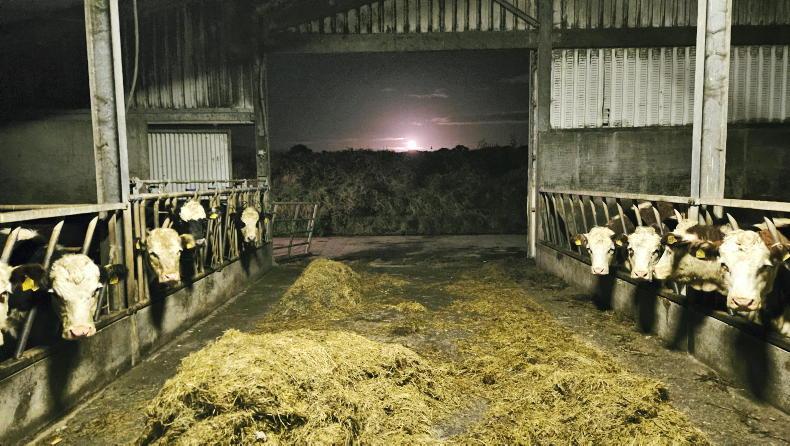
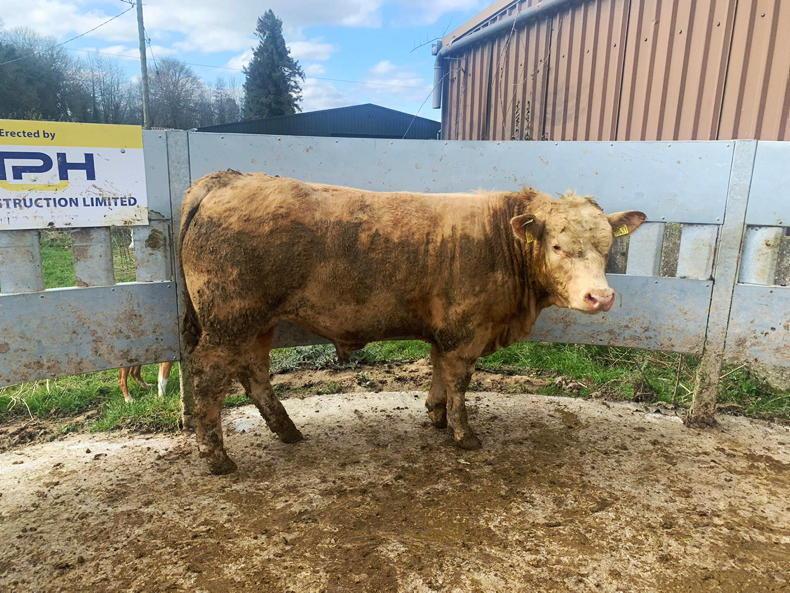
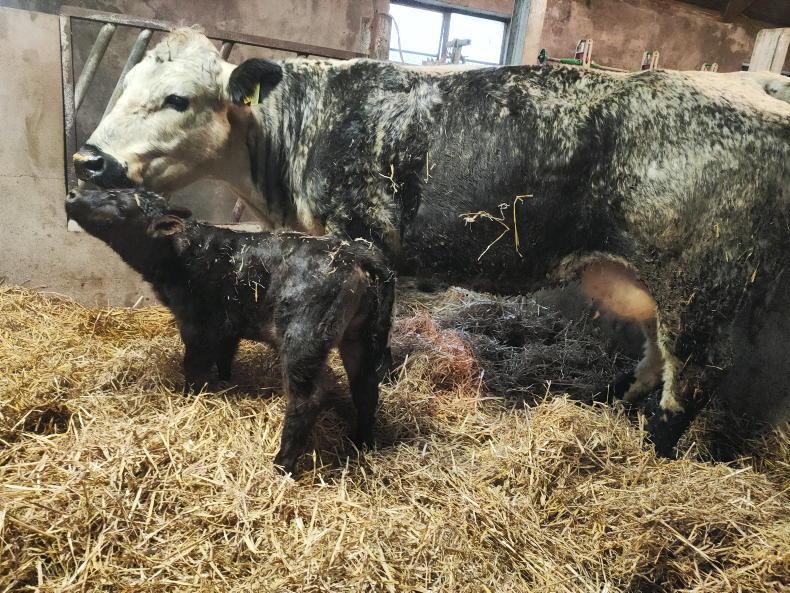
SHARING OPTIONS